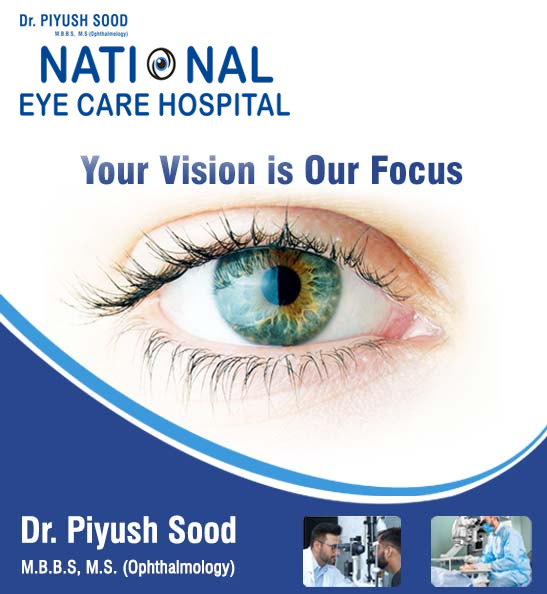Andalusia Ophthalmologist: Devoted Vision Look After Every Patient
Andalusia Ophthalmologist: Devoted Vision Look After Every Patient
Blog Article
Is Refractive Surgery Right for You? Factors to Think About for Better Eyecare
In the world of eye treatment, the decision to undergo refractive surgical procedure is a weighty one that requires thoughtful factor to consider. From the ins and outs of one's ocular health to the intricacies of individual assumptions and day-to-day habits, each facet holds significance in the broader landscape of refractive surgical treatment candidateship.
Eye Wellness Assessment
When taking into consideration refractive surgical treatment, an extensive eye health examination is essential to examine the viability of the procedure for every person. cardiologist andalusia. This evaluation involves a series of assessments and tests conducted by an eye treatment professional to establish the total health and wellness of the eyes, the existence of any kind of underlying problems, and the stability of the refractive error
Throughout the evaluation, numerous aspects are considered, such as the person's medical background, current eye prescription, corneal density, student size, and tear film high quality. These evaluations help to identify any kind of contraindications to refractive surgical treatment, such as corneal irregularities, cataracts, or without treatment eye infections. Furthermore, the assessment aids to handle client expectations relating to the possible outcomes of the surgical procedure based upon their special eye features.
Ultimately, the eye wellness evaluation is crucial in making sure the safety and effectiveness of refractive surgical treatment, as it supplies important insights into the individual's eye wellness status and aids determine the most suitable treatment alternatives for achieving optimal visual results. (eye center andalusia)
Lifestyle Evaluation
A comprehensive way of living evaluation is important in identifying the suitability of refractive surgical procedure for a person's aesthetic adjustment needs. Way of living aspects such as line of work, leisure activities, and everyday tasks play a crucial role in the decision-making process pertaining to refractive surgical treatment.
Moreover, way of life practices such as sports participation, exterior activities, or also skincare regimens can influence the healing process and overall success of refractive surgical treatment. By conducting a detailed way of living evaluation, eye care experts can customize their referrals and therapy strategies to meet the unique demands of each individual, eventually leading to improved visual end results and complete satisfaction.
Assumption Alignment

Setting reasonable assumptions includes complete pre-operative conversations between the eye doctor and the person. The cosmetic surgeon must transparently communicate the potential risks, advantages, and constraints of the treatment (neurologist andalusia). People require to comprehend that while numerous people accomplish 20/20 vision or far better following refractive surgery, some might still require glasses for sure tasks like analysis or driving at evening. Handling these expectations aids avoid frustration and discontentment post-surgery, bring about a much more positive overall experience for the person.
Threat Evaluation

Factors that might enhance the danger of problems consist of age, specific clinical problems like autoimmune diseases, unstable vision prescription, thin corneas, and impractical individual expectations. In addition, picking a knowledgeable and seasoned specialist, complying with pre and post-operative treatment guidelines faithfully, and revealing any pertinent case history can help reduce risks.
To reduce the chance of difficulties, eye doctors conduct detailed pre-operative analyses to identify any kind of contraindications to surgery. They also talk about the potential risks and benefits with patients throughout the assessment process. By taking part in open interaction and shared decision-making, both the eye doctor and the individual can work together to establish if refractive surgery is the right selection based upon specific threat profiles and wanted outcomes.
Appointment Significance
Thinking about the vital role of educated decision-making in examining risks and potential problems in refractive surgical treatment, the consultation procedure holds significant relevance in assisting individuals in the direction of optimal end results. During the assessment, the eye doctor assesses the person's eye health and wellness, refractive mistakes, and total viability for surgical treatment. This preliminary assessment is crucial in figuring out one of the most ideal treatment for every person, taking into consideration factors such as corneal thickness, student size, and existing eye conditions.
Moreover, the assessment functions as a possibility for people to review their assumptions, concerns, and any kind of inquiries they might have pertaining to the surgical procedure. Clear interaction in between the cosmetic surgeon and the client is vital to ensure realistic assumptions and a comprehensive understanding of the possible dangers and advantages involved.
Furthermore, the assessment allows the doctor to clarify the various surgical options available, their respective outcomes, and the post-operative care called for. This comprehensive conversation empowers individuals to make well-informed decisions regarding their eye care, leading to better contentment and end results post-surgery.
Conclusion
Finally, people considering refractive surgery must undergo a detailed eye wellness assessment, assess their way of life routines, straighten their assumptions with prospective end results, analyze the affiliated dangers, and prioritize appointments with eye care experts. These factors play a vital function in establishing the suitability of refractive surgical treatment for each individual, guaranteeing optimum results and fulfillment with the treatment.
Patients taking into consideration refractive surgical procedure often have high assumptions regarding the end results, expecting excellent vision more information without the demand for glasses or contact lenses. While refractive surgery can greatly enhance vision and minimize dependence on visual aids, it is essential for people to understand that outcomes might vary based on individual variables basics such as the level of refractive mistake, corneal density, and overall eye wellness.
By involving in open interaction and shared decision-making, both the client and the eye doctor can function with each other to identify if refractive surgical procedure is the right option based on individual danger accounts and preferred outcomes.
Considering the vital role of notified decision-making in examining threats and prospective complications in refractive surgery, the consultation procedure holds considerable importance in assisting patients towards optimal end results. During the examination, the ophthalmologist reviews the patient's eye health, refractive errors, and overall viability for surgical procedure.
Report this page